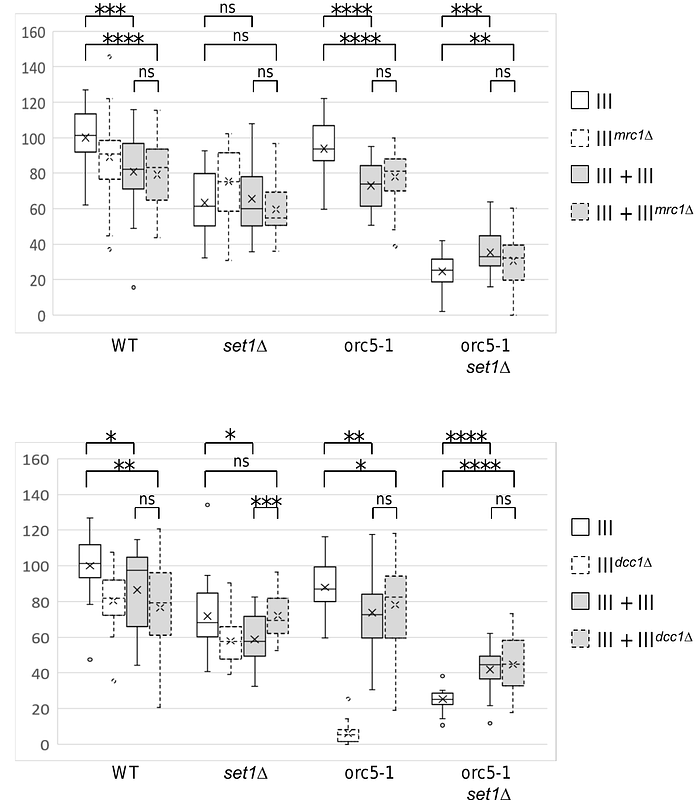Aneuploidy alleviates the cell proliferation defect caused by mutations affecting origin licensing in Saccharomyces cerevisiae

Aneuploidy alleviates the cell proliferation defect caused by mutations affecting origin licensing in Saccharomyces cerevisiae
de La Roche Saint-Andre, C.
AbstractAlthough aneuploidy is generally detrimental to the survival and growth of normal cells, it can be beneficial under certain stress conditions, such as those caused by harmful mutations. In Saccharomyces cerevisiae, we find that the spontaneous doubling of chromosome III in the orc5-1 set1{triangleup} mutant accelerates proliferation, a benefit resulting from a reduction in the negative effect of the orc5-1 mutation. Enhanced proliferation is also observed when a fragment from a different chromosome is introduced, demonstrating that the benefit is not simply due to extra copies of specific genes. A comparable growth-enhancing effect of an extra chromosome is observed for mutations affecting other proteins involved in DNA replication licensing. The suppression of orc5-1 growth defect is also observed in the absence of the G1 cyclin Cln3, which lengthens the G1 phase, while overexpressing CLN3, which shortens G1, has the opposite effect. Additionally, Cln3 loss mirrors the effect of an extra chromosome for other mutations. These findings indicate that the severity of mutations impacting origin licensing hinges on the length of the G1 phase. Thus, we propose that the fitness-enhancing effect of an extra chromosome in DNA replication licensing mutants largely stems from its ability to extend G1, compensating for inefficient origin licensing.